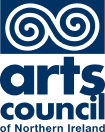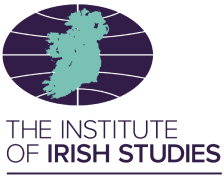Campbell, Peter, and Sarah Jankowitz, ‘Funding Art in Post-Conflict Society: A “Peace Dividend”?’, International Journal of Cultural Policy, (2024), 1–16 <https://doi.org/10.1080/10286632.2024.2304297>
In recent years, a range of research and scholarship has suggested a role for art in building peace and achieving reconciliation in societies emerging from violent conflict. As a great deal of funding is available to facilitate reconciliation and peacebuilding from a range of organisations, this paper considers what is, and what can be, known about the level to which such funds are actually apportioned to arts practice – here termed ‘Art for Reconciliation’ (AfR). It considers attempts to locate available data relating to the case of Northern Ireland, and presents indicative findings which suggest that, to the extent that information can be located, the recognition of artistic interventions by funders in this field remains limited, as does our wider knowledge about such interventions and their potential impact. It ends by considering the wider contextual factors that may serve to explain these patterns, and to limit progress in this area.
Coupe, Alexander, ‘“I’m Just a Pebble in the Pond”: Exploring the Lived Legacies of Art for Reconciliation’, Research in Drama Education: The Journal of Applied Theatre and Performance, 27.3 (2022), 366–85 <https://doi.org/10.1080/13569783.2022.2052833>
Since the 1998 Good Friday/Belfast Agreement, the arts have been promoted as capable of reconciling communities in Northern Ireland. In keeping with cultural policy orthodoxies in Britain and Ireland, practitioners are expected to provide even more information on the contribution of their work to this agenda. However, short-term evaluation processes entrench bureaucratic systems of arts administration that occlude, and even hinder, the complex, long-term legacies of particular applied arts projects. This article instead argues that situating participant experience within the broader material conditions of inequality and scarcity they face offers a better account of the transformative power of such projects.
Coupe, Alexander, Pauline Hadaway, and Sarah Jankowitz, ‘Selective Memory, Funder Documentation and Peacebuilding: Recovering the Art of Reconciliation’, Cultural Trends, 2023, 1–17 <https://doi.org/10.1080/09548963.2023.2217768>
The decades following the 1998 Good Friday/Belfast Agreement saw an expansion of support for cultural activities aimed at fostering reconciliation in Northern Ireland. Yet in spite of an increase in funder-led processes of audit and evaluation, there exists a significant absence of accessible data recording the development, production and experience of such cultural and artistic practices. Using the concept of the archive as a site of memory and forgetfulness, this article explores how funders of Art for Reconciliation (AfR), and the power implicit in their relationships with funded practitioners, influence what traces of this work are officially archived and in what form. The selectivity of this archive reflects a managerialism associated with the liberal peace ideology that decontextualises and depoliticises peacebuilding. In order to develop effective AfR practices, we explore ways to recollect and disseminate those aspects of AfR practice that existing methods of documentation have tended to forget.
Durrer, Victoria, and David Grant, ‘Collapsing Time: LGBTQ+ Rights in Northern Ireland, A Queer Céilí at the Marty Forsythe’, Scene, 8.1 (2020), 105–20 <https://doi.org/10.1386/scene_00026_1>
This article examines Kabosh Theatre Company’s production of Dominic Montague’s A Queer Céilí at the Marty Forsythe, in Belfast, Northern Ireland, during its first run in March 2019. Based on archival research and personal accounts of a weekend surrounding the October 1983 National Union of Students Lesbian and Gay Conference in Belfast, the play depicts a moment of lesbian and gay activism largely neglected in critical and popular historical accounts of the period known as the ‘Troubles’ (1968–98). Through observation of rehearsals and performances as well as in-depth interviews with audiences and artists, we argue that the play’s situation in the venue, where many of the events portrayed originally took place, and the use of archival and found photographic imagery as key scenic elements create a sense of ‘collapsed time’ that brings the past into dialogue with the present and future, particularly regarding the relationship of LGBTQ+ rights to societal reconciliation.
Lybeck, Eleanor, ‘Beyond Reconciliation, towards Regeneration: Social Circus in Northern Ireland’, Cultural Trends, 0.0 (2023), 1–15 <https://doi.org/10.1080/09548963.2023.2258815>
This article acknowledges for the first time in an academic context the significant role played by social circus in conflict transformation across Northern Ireland and, more specifically, urban regeneration in Belfast after the signing of the Good Friday Agreement. The focus is on the Belfast Community Circus School (BCCS) and the annual Festival of Fools, which emerged from the social mission and practical delivery of BCCS activities. BCCS was founded in the mid-1980s to offer children and young people in Belfast an alternative, creative outlet for their feelings and to establish “common ground” between communities amid conflict. This essay takes its lead initially from BCCS founders, reconsidering their motivations and the fundamental tenets of the School – as expressed by teachers and former pupils – alongside other studies of social circus in action around the world throughout a similar period. It also theorises the political intent and impact of BCCS through reference to the performance philosophy of Alan Read. Evidence in support of the argument is drawn from a range of available sources including policy and strategy documents, annual reports, performance evaluations, and interviews with key figures within the organisation. From this body of evidence, it becomes clear that, in the move towards what we might term (after Read) a Republic of Play, a change in BCCS, its own sense of identity and purpose within society was inevitable, as Northern Ireland continues the process of reconciliation and post-conflict transformation. Finally, then, the article attends to the recent transformation within BCCS itself, which in 2021 became Circusful: an organization with its own set of social and economic goals.
O’Rawe, Des, and Mark Phelan, ‘Unreconciled Accounts? Screen and Performing Arts in Post-Conflict Northern Ireland’, Cultural Trends, (2023), 1–17 <https://doi.org/10.1080/09548963.2023.2217777>
In any post-conflict society, the work of creating an effective framework for truth and reconciliation is fraught with challenges that those in power will often seek to manage and manipulate. In this article we explore the critical role of the arts within the discourse of political reconciliation in contemporary Northern Ireland. Taking contemporary theatre and screen culture as our case-studies, we assess the extent to which these modes of cultural production create alternative spaces for dialogue and reconciliation in a dysfunctional post-conflict democracy, where the responsibility of political institutions and elites is failing to adequately address the rights of victims and survivors.
Shirlow, Peter, ‘Capturing Value: Researching Funded Art for Reconciliation’, Cultural Trends, (2023), 1–16 <https://doi.org/10.1080/09548963.2023.2217767>
The undertaking of a long-term study of art for reconciliation (AfR) throws up problematics in terms of instrumentalist evaluation, short-term funding, a lack of archiving and insufficient long-term view/memory of the activity. In researching twenty years of funding and practice we argue that the concepts of reconciliation lack conceptual coherence in approach within an environment that resonates with tensions and conflict. One reason for these tensions is the under-appreciation of the role of the aesthetic given funders rarely develop a proper understanding of arts social peacebuilding roles. The article not only promotes the concepts of AfR and the multi-methodological approaches required to study long-term aspects and outcomes but also highlights the potential of research that brings funders, those funded, artists and participants together to map out more cohered AfR approaches. Reconciliation requires time to develop and embed and within that understanding, its potential to achieve will remain underdeveloped.




